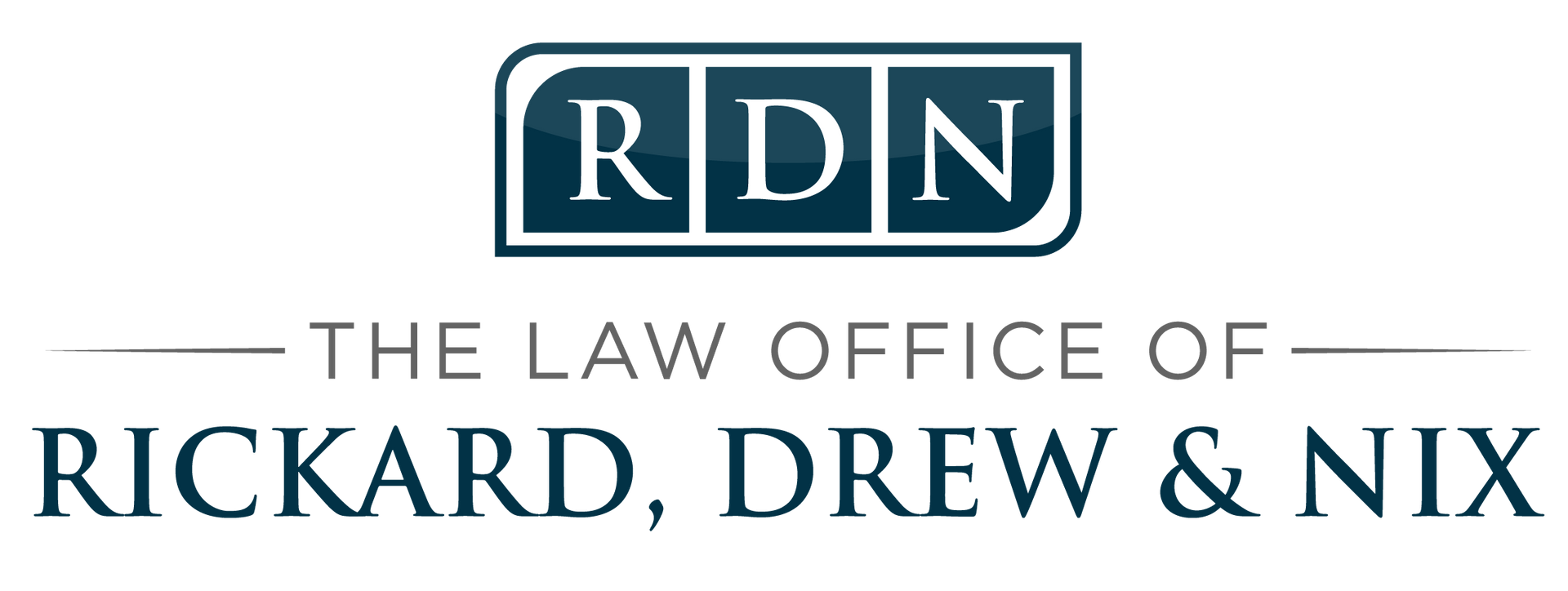Key Questions to Discuss With Your Personal Injury Lawyer
As you navigate the chaos of your life after a personal injury, you are acutely aware that you need help. Not only are you suffering from physical pain, but you've likely suffered property damage and trauma. You may be searching for answers from a personal injury attorney but aren't quite sure what to ask. Attorneys realize your lack of legal knowledge and are adept at guiding you through the process. A consultation with a professional can quickly allay your fears and give you the confidence to move forward with a claim.
When facing the aftermath of an accident, understanding how to work with your personal injury attorneys can make a significant difference in your case. Many clients wonder about their lawyer's trial experience, the strength of their case, or what compensation they might expect after surgery. This article will address essential questions to discuss with your lawyer, including assessing their expertise and clarifying legal fees. Engaging with this content will provide clarity during a challenging time, helping you navigate the legal process and effectively prepare for a jury trial.
Assessing Your Lawyer's Experience and Expertise
Understanding a lawyer's experience and expertise is vital when pursuing a personal injury lawsuit. Key questions include their experience with cases similar to the client's, whether they have handled cases in the local area, their success rate in personal injury claims, and if they possess any specialized certifications in personal injury law. Additionally, clients should inquire if the lawyer will personally manage their case or delegate it to another attorney. These insights help gauge the lawyer's qualifications and suitability for the specific situation, including cases like slip and fall accidents or tackling complex issues related to medical records and demand letters.
What Experience Do You Have With Cases Similar to Mine?
When discussing experience with cases similar to a client's, it is important for the lawyer to share specific examples related to Car Accidents, medical malpractice, or other personal injury matters. This allows the client to assess how the attorney has successfully navigated similar situations and secured damages for their clients in the past. A lawyer's firsthand experience in handling injuries from these types of incidents can significantly impact the potential outcome of the case and provide reassurance to the client.
Have You Handled Cases in My Local Area?
Understanding whether a personal injury lawyer has handled cases in the client's local area is crucial. Local legal expertise can significantly impact a case, as the lawyer will be familiar with local courts, judges, and insurance companies. This knowledge may allow the attorney to gather evidence more effectively and utilize expert witnesses who are accustomed to local standards in injury law. Inquiring about local case experience also helps the client understand potential fees, as regional practices may influence overall costs.
What Is Your Success Rate With Personal Injury Claims?
Understanding a lawyer's success rate in personal injury claims is critical for clients considering a lawsuit. A high success rate indicates the attorney's ability to secure favorable settlements, whether through negotiation or arbitration, particularly in cases involving motor vehicle accidents. Clients should ask the lawyer for specific statistics or examples of past settlements to gain insight into how effectively they have achieved justice for their clients.
Do You Have Any Specialized Certifications in Personal Injury Law?
Inquiring about specialized certifications in personal injury law is a crucial aspect when assessing an attorney's expertise. These certifications demonstrate the lawyer's commitment to ongoing education and proficiency in specific areas, such as product liability or negotiation tactics. Clients should ensure that the attorney has relevant credentials that could enhance their ability to present cases effectively in court, utilizing the right witnesses and legal strategies to secure just compensation.
Will You Personally Handle My Case or Assign It to Someone Else?
Clients should inquire whether the lawyer will personally handle their case or delegate it to another attorney, as this decision can significantly affect the outcome of injury cases. A lawyer's personal involvement often translates to better understanding and knowledge of the client's specific situation, including nuances of the insurance policy and premises liability issues. Knowing who will manage the case is essential for clients as they evaluate their legal representation and trust in the process.
Understanding the Strength of Your Personal Injury Case
Understanding the strength of a personal injury case involves examining several critical factors. Clients should discuss with their lawyer what elements could influence the outcome, such as evidence that can bolster their claim, the application of liability concerning the defendant, and the relevant statutes of limitations. Additionally, anticipating potential challenges and reviewing the applicable laws are essential to forming a solid strategy.
What Factors Could Influence the Outcome of My Case?
Several critical factors can influence the outcome of a personal injury case. The determination of negligence, for instance, is essential, as establishing that the other party acted carelessly can significantly impact the verdict. Additionally, elements such as eyewitness testimony, surveillance footage, and the extent of injuries sustained—especially in cases involving pedestrians—play crucial roles in negotiating financial compensation, should the case go to trial or settlement discussions.
Are There Any Potential Challenges We Should Anticipate?
Clients should be aware of potential challenges that may arise during a personal injury case, such as the possibility of a deposition. This legal procedure, often necessary in car accidents or other accidents, can create stress and uncertainty for individuals not familiar with the process. Having thorough legal advice and understanding the nature of any challenges can prepare clients for what lies ahead, ensuring they are equipped to present their case effectively.
What Evidence Will Strengthen My Claim?
To strengthen a personal injury claim, clients must gather evidence that clearly establishes their case. This can include medical records documenting injuries from incidents such as dog bites or car accidents, witness statements offering credible accounts, and photographs of the accident scene. All of this information plays a crucial role during mediation or negotiations with vehicle insurance companies, ensuring that the client’s position is well-supported and can lead to a favorable outcome under a contingent fee arrangement.
How Does Liability Apply in My Situation?
Understanding legal liability is essential in a personal injury case, as it determines who is responsible for the accident and any resulting damages. The percentage of liability assigned to each party will influence the total amount a client can claim for pain and suffering, along with other losses. Clients should discuss with their lawyer how liability applies to their specific situation, ensuring they grasp the implications for their potential compensation and any legal strategies needed to secure their rights.
What Laws Are Relevant to My Case?
Understanding the laws relevant to an injury lawsuit is crucial for clients seeking to determine the strength of their injury case. This includes grasping concepts like fault, which directly influences the outcome and potential compensation. Clients should engage their lawyer in a discussion regarding the specific statutes that apply to their case, as well as how these laws may affect liability, damages, and the overall legal strategy, especially during a free case evaluation.
Clarifying Legal Fees and Payment Arrangements
Clarifying Legal Fees and Payment Arrangements
Discussing legal fees and payment arrangements with a personal injury lawyer is essential for understanding potential expenses. Clients should inquire about how the lawyer structures their fees, whether there are any upfront costs, and if they operate on a contingency fee basis. Additionally, it's important to ask if any fees are owed if the case does not win and to request a written agreement outlining all costs involved.
How Do You Structure Your Fees?
When discussing fee structuring with a personal injury lawyer, clients should seek clarity on how the attorney plans to charge for their services. Many personal injury law firms operate on a contingency fee basis, which means they only collect fees if a favorable judgment or settlement is achieved. It is essential for clients to understand any upfront fees and to clarify the specifics of the agreement, including how costs may be affected by factors such as property damages and the concept of comparative negligence in their case.
Will There Be Any Upfront Costs I Need to Pay?
Clients should ask their personal injury lawyer if there are any upfront costs associated with taking on their case. Understanding whether an advocate requires initial payments can clarify financial obligations and help the plaintiff plan accordingly. Many lawyers who specialize in personal injury cases operate on a contingency basis, meaning they only receive payment if the case is successful, which eliminates the burden of upfront fees.
Do You Work on a Contingency Fee Basis?
Inquire if the personal injury lawyer works on a contingency fee basis, as this arrangement means clients will only pay attorney fees if they win their case. This model minimizes financial risk for clients, making legal representation accessible without upfront costs. Understanding the details of a contingency fee, including how fees are calculated from any settlement or judgment, is essential for clients to make informed decisions about their legal representation.
If We Don't Win, Will I Owe Any Fees?
Clients considering a personal injury claim often worry about the financial implications of losing their case. They should inquire whether they will owe any fees if the attorney does not win. Many personal injury lawyers operate on a contingency fee basis, which means clients typically do not have to pay attorney fees unless their case results in a favorable settlement or judgment, relieving them of the financial burden associated with losing the case.
Can You Provide a Written Agreement Outlining All Costs?
Requesting a written agreement outlining all costs associated with legal representation is a fundamental step for clients when working with a personal injury lawyer. This agreement should detail fee structures, any potential upfront costs, and expenses that may arise during the case, ensuring transparency and clarity. By having this documentation, clients can better understand their financial commitments and avoid unexpected costs, ultimately aiding in their decision-making process regarding legal representation.
Understanding Potential Compensation and Damages
Clients should discuss various aspects of compensation and damages with their personal injury lawyer. Key topics include identifying the types of compensation that can be sought, calculating the overall value of a claim, and determining if future medical expenses can be included. Additionally, it's important to clarify whether compensation for pain and suffering is available and if punitive damages may apply in the case.
What Types of Compensation Can I Seek?
When pursuing a personal injury claim, clients can seek various types of compensation to cover their losses. These may include medical expenses for treatment, lost wages due to time away from work, and damages for pain and suffering caused by the injury. Additionally, clients should discuss whether compensation for future medical expenses or punitive damages is applicable in their case, as these factors can significantly influence the overall amount they may recover.
How Is the Value of My Claim Calculated?
The value of a personal injury claim is calculated by considering several key factors, including medical expenses, lost wages, and the severity of the injuries sustained. Personal injury lawyers often analyze documentation related to medical treatment, receipts for rehabilitation, and wage statements to establish a clear picture of the financial impact on the client. Additionally, they may evaluate how the injury affects the client's quality of life, which can influence the overall claim amount through compensation for pain and suffering.
Can We Include Future Medical Expenses in the Claim?
Clients can often include future medical expenses in their personal injury claims, reflecting the ongoing treatment and care resulting from their injuries. This can encompass anticipated costs for surgeries, therapies, or medications that may be necessary as part of the recovery process. It is essential for clients to discuss with their personal injury lawyer how these future expenses can be documented and presented to effectively support their claim, ensuring they receive the full compensation needed for their recovery journey.
Is Compensation for Pain and Suffering Available?
Compensation for pain and suffering is an essential aspect of personal injury claims, aimed at addressing the emotional and physical distress experienced by clients due to their injuries. This type of compensation can cover various elements, such as anxiety, depression, and loss of enjoyment in life resulting from the incident. Engaging with the personal injury lawyer about how pain and suffering can be substantiated with evidence, including medical records and personal statements, is vital for effectively pursuing fair compensation.
Are Punitive Damages Applicable in My Case?
Punitive damages may be applicable in a personal injury case, primarily aimed at punishing the responsible party for egregious behavior that causes harm. These damages differ from compensatory damages, as they address the defendant's conduct rather than the victim's losses. Discussing with the personal injury lawyer the specifics of the case, including any negligent actions or gross misconduct by the opposing party, is crucial to determining whether seeking punitive damages is a viable option for enhancing the overall compensation package.
Defining Your Role in the Legal Process
Defining a client's role in the legal process is essential for achieving favorable outcomes in personal injury cases. Clients should understand what actions they need to take, how they can contribute to building a strong case, and the importance of confidentiality. Additionally, clients must be aware of how to respond to insurance representatives and how their lawyer will keep them informed about case developments.
What Actions Do You Need Me to Take?
Clients play a vital role in the personal injury legal process, and understanding what actions they need to take can significantly influence the case outcome. They should provide their lawyer with all relevant documentation, including medical records and accident reports, to build a strong claim. Additionally, clients must remain engaged throughout the process, following their lawyer's guidance on communication with insurance companies and being prepared for depositions or testimonies to support their case.
How Can I Contribute to Building a Strong Case?
Clients can contribute significantly to building a strong personal injury case by actively participating in the legal process. This involvement includes providing all necessary documentation, such as medical records and accident reports, which are vital for substantiating claims. By staying engaged with their lawyer and following guidance on communication strategies with insurance companies, clients can help ensure that their case is presented effectively and persuasively during negotiations or in court.
Should I Refrain From Discussing the Case With Others?
It is crucial for clients to refrain from discussing their personal injury cases with others outside of their legal team. Sharing details about the case, especially on social media or with friends, can unintentionally weaken their position and alter the outcome. Clients should prioritize confidentiality and follow their lawyer's advice to avoid any potential complications related to evidence or settlement negotiations.
What Should I Do if Contacted by Insurance Representatives?
If contacted by insurance representatives, clients should proceed with caution and consult their personal injury lawyer immediately. It is critical to refrain from providing statements about the case, as this information can be used against them in negotiations. Communicating through the attorney ensures that the client’s rights are protected and that any discussions align with their legal strategy, ultimately contributing to a more favorable outcome in their personal injury case.
How Will You Keep Me Informed About Case Developments?
Clients should actively discuss with their personal injury lawyer how they will be kept informed about case developments throughout the legal process. Regular communication is vital, and a good attorney should provide updates on important milestones, such as court dates, evidence gathering, and negotiations with insurance companies. Understanding the communication style and frequency can help clients feel more engaged and reassured about their case, ensuring they remain informed of any significant changes or actions required on their part.
Establishing Communication and Case Management
Effective communication is vital in personal injury cases. Clients should discuss how frequently they will communicate about their case and the best way to reach their lawyer with questions. Additionally, it's essential to understand if regular updates will be provided, who else will be involved in the case, and what the typical response time for client inquiries is. These insights help establish a strong working relationship and keep clients informed throughout the legal process.
How Frequently Will We Communicate About My Case?
Clients should establish clear communication expectations with their personal injury lawyer regarding the frequency of updates about their case. Understanding how often the lawyer will provide case updates—whether weekly, bi-weekly, or as significant developments occur—can help clients feel more informed and engaged throughout the legal process. This proactive communication allows the lawyer to address any concerns the client may have while ensuring they remain aware of important milestones in their personal injury case.
What Is the Best Way to Reach You With Questions?
Clients should establish a clear communication plan with their personal injury lawyer by determining the best method to reach them with questions. This could include phone calls, emails, or scheduled meetings, depending on the client's preference and urgency of the inquiries. Ensuring that clients know how to connect with their attorney facilitates a smoother legal process, allowing for timely updates and addressing any concerns that may arise throughout the case.
Will I Receive Regular Updates on Any Progress?
Clients should clearly establish expectations around receiving regular updates from their personal injury lawyer regarding case progress. This communication is vital in ensuring clients remain informed about important developments and milestones. A proactive approach to communication helps bridge the gap between the client and attorney, fostering understanding and trust throughout the legal process.
Who Else Will Be Working on My Case?
Clients should inquire about who else will be working on their personal injury case within the law firm. It is common for legal teams to involve paralegals or junior attorneys to assist in research, drafting documents, and managing timelines. Understanding the roles of each team member can help clients feel more at ease, knowing that multiple professionals are invested in their case and that they will benefit from diverse expertise and support throughout the legal process.
What Is Your Typical Response Time for Client Inquiries?
Understanding the typical response time for client inquiries is an essential part of establishing effective communication with a personal injury lawyer. Clients should feel comfortable asking their attorney how quickly they can expect responses to emails or calls. Knowing the expected timeframe helps manage client expectations and fosters trust in the attorney-client relationship, crucial for maintaining open lines of communication throughout the legal process.



